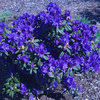Using Round-Up
GGardens
11 years ago
Related Stories

FURNITUREUse Wicker and Rattan for a Tropical Flavor All Year Round
Find out more about what separates — and unites — these classic materials
Full Story
Warm Up a Sunroom Year-Round
Turn your sunroom into a space you can enjoy through all four seasons
Full Story
10 Ways to Round Up Some Texas Style
Get a Lone Star State feel minus the clichés with cool art, hipster vinyl and pieces with history to balance the look
Full Story
ORGANIZINGGuest Picks: Stylish Storage Box Round-up
Stash Things Away In Style with One of These 20 Storage Options
Full Story
COLOR10 Great Places for Rich Fall Colors Year-Round
Use nature’s burgundies, golds and oranges in these select spots for a comforting feel no matter what the season
Full Story
DECORATING GUIDESTwinkle Lights Keep the Holiday Spirit Year-Round
Hate to take down your outdoor lights after the holidays? Here are 12 great ways to use these festive sparklers inside your home
Full Story
FURNITUREGather 'Round: The Perfect Conversation Area
Set up four club chairs and a round coffee table in den, library or living room
Full Story
PRODUCT PICKSGuest Picks: Orange Fabrics for Year-Round Fanfare
Nothing punches up a room faster than pillows, drapes or upholstered furnishings in energizing orange — even after autumn
Full Story
HOMES AROUND THE WORLDTraditional Kitchen Opens Up and Lightens Up
Removing a wall was key to creating a large kitchen and dining space for family life in this London house
Full Story
DECORATING GUIDESPoppies Pop Up in Home Interiors
Sprinkle these bright blossoms throughout your house for springtime all year round
Full StoryMore Discussions









jean001a
GGardensOriginal Author
Related Professionals
Fort Lee Landscape Architects & Landscape Designers · Ilchester Landscape Architects & Landscape Designers · Edmond Landscape Contractors · Alpharetta Landscape Contractors · Brockton Landscape Contractors · Brunswick Landscape Contractors · Pahrump Landscape Contractors · Richmond Landscape Contractors · West Orange Landscape Contractors · Eastlake Landscape Contractors · Bensenville Landscape Contractors · Bonney Lake Fence Contractors · Cockeysville Fence Contractors · Eastvale Fence Contractors · Laguna Hills Fence Contractorslilydude
Wayne Reibold
GGardensOriginal Author
Wayne Reibold
lilydude
Wayne Reibold
Embothrium
Wayne Reibold
lilydude
Embothrium
botann
gardengal48 (PNW Z8/9)
lilydude
buyorsell888
lilydude
paulyn
Embothrium
quillfred